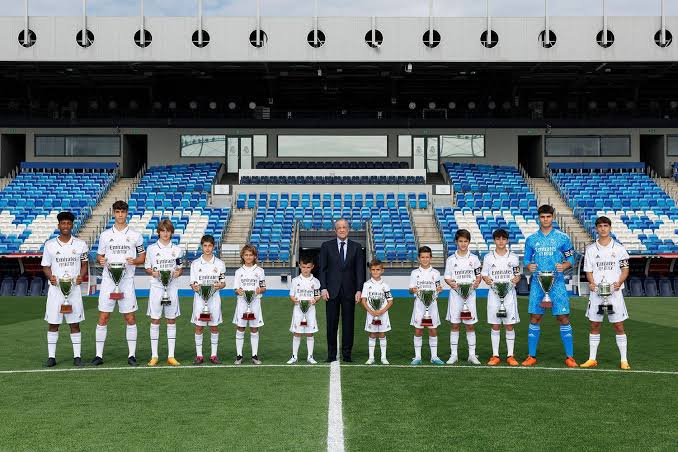These are the places where the finest players learn and go on to have successful careers. These famous academies are not only locations to go to for training. They are great places to find potential, and they have produced world-class football players who win league championships at home and do well on the global stage. These are places which work on all aspects of a player’s game, from tactical discipline to technical skill. They teach young athletes how to think, stay healthy, and play successfully at the highest level. This is a long list of European academies that are still producing stars for the future.
A lot of scouts and elite teams admire these institutions since they can develop youngsters with potential into stars. In a world where there are a lot of them, each academy has its unique flair that helps it stand out. Spain’s concentration is on fast passes, while Germany’s focusses on athletic speed. This article is about the greatest schools in Europe for young football players. It also speaks about how they train their players, notable graduates, and young football players who have made an impact in the globe. If you want to know where the next major football stars are coming from or where the best players come from, this article is meant to enlighten you.
Top Ten Best Football Academies Producing Global Stars In Europe
10. Lyon Academy (France)
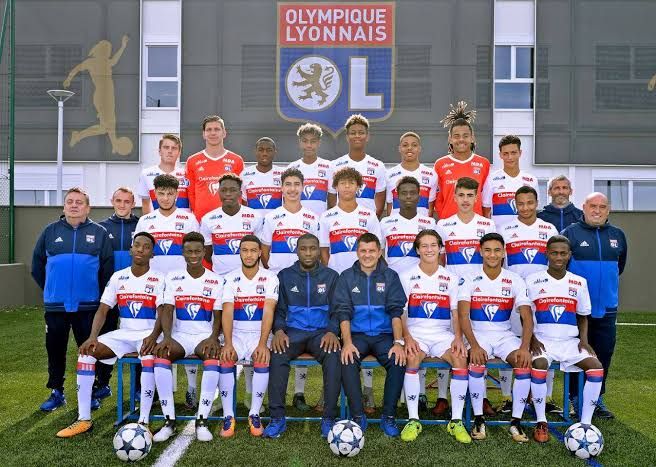
Lyon’s youth centre at Mézieu ranks among the most respected academies in European football. With graduates like Karim Benzema, Alexandre Lacazette and new emerging talents, this academy balances creative attacking flair with disciplined tactical instruction . In 2023 alone, the academy generated over €100 million through player transfers — Castello Lukeba’s €25.8 million move being a standout . Lyon’s reputation comes not just from individual stars but from a steady stream of players entering top five leagues in Italy, Germany and beyond.
The focus on vision, combination play and strong technical shaping gives Lyon’s graduates an edge in modern European football. Despite occasional first‑team struggles, its academy remains a pillar of player development and club sustainability. Facilities are modern, coaching blends French technical tradition and international collaboration through partnerships in Senegal, Brazil and Lebanon. Lyon Academy offers pathways for young players to flourish in a competitive football environment grounded in precise passing, attacking creativity and a clear route to professional levels.
9. Benfica Youth Academy (Portugal)
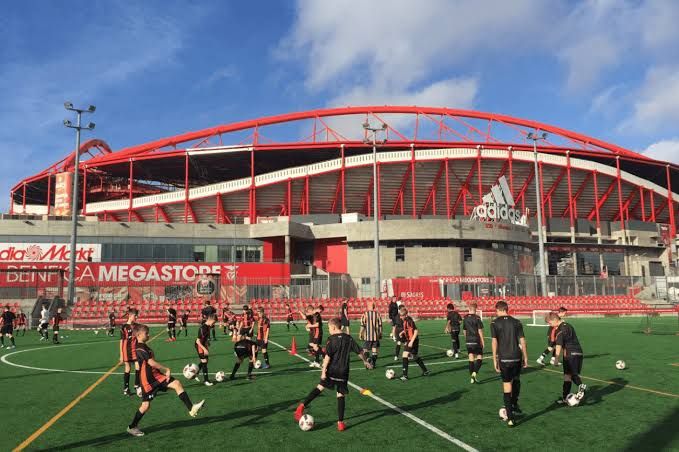
Benfica’s Seixal academy is renowned for consistently producing elite players who excel across Europe. Graduates include Bernardo Silva, Rúben Dias and João Félix, all of whom have star status in major leagues . Benfica has earned over €500 million from player sales since 2014, making it one of the most financially successful academies in the sport . The training model includes futsal sessions, cage football drills and even dance to foster technical touch and creativity on the ball.
This mix of instinctive skill work and structured tactical systems equips graduates to perform at the highest levels. International expansion, including new development centres in Africa, ensures a global reach and steady talent influx . With more than 1,000 alumni active worldwide, Benfica combines player quality, market value and consistent pathways into major league football. Its academy’s blend of technical focus, tactical awareness and commercial strategy sets a high standard for long‑term success in European youth development.
8. Chelsea FC Academy (England)

Cobham, the base of Chelsea’s academy, delivers a strong blend of technical refinement and competitive readiness. Notable graduates include Mason Mount, Reece James and Tariq Lamptey, each earning first‑team minutes and national recognition . The Elite Player Performance Plan (EPPP) has enabled Chelsea to invest in education, coaching and facilities, raising the profile of youth integration in English football.
Their system includes age group teams from under‑9 to under‑23, emphasising holistic development including mental coaching and academic support. Chelsea has moved graduates into Premier League play and top divisions across Europe. While transfer revenues from youth players contribute to commercial strategy, the consistent technical standards remain a hallmark . The pathway from academy to first team is well‑structured but competitive, ensuring that only the most capable rise through. Chelsea Academy remains one of England’s strongest youth systems, prized for producing tactically aware, technically skilled professionals ready for top flight demands.
7. Borussia Dortmund Academy (Germany)
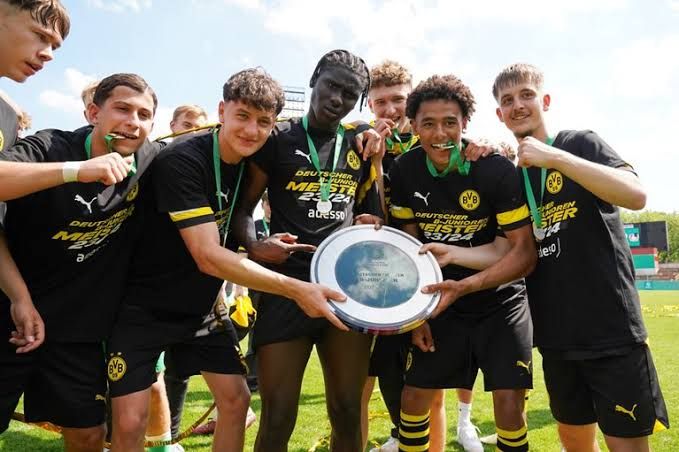
Borussia Dortmund’s youth academy is widely admired for producing players who excel in fast‑paced, high intensity football. Graduates such as Mario Götze, Marco Reus, Christian Pulisic and Jadon Sancho embody its philosophy . The system prioritises rapid promotion to senior football, often integrating standout performers into Bundesliga matches as teenagers. Lars Ricken, youth coordinator since 2008, leads a setup that nurtures tactical intelligence, physical readiness and competitive boldness.
Dortmund’s academy is built around giving young talent exposure to top level match experience, supporting confidence while still refining technique. This model has led to many graduates moving to elite European clubs. More than just producing stars, Dortmund’s academy fosters a culture where young players can trust there is a genuine route to first team action. The philosophy rests on speed, intelligent movement, attacking flair and early responsibility, making Dortmund one of Europe’s premier talent incubators.
6. Bayern Munich Campus (Germany)
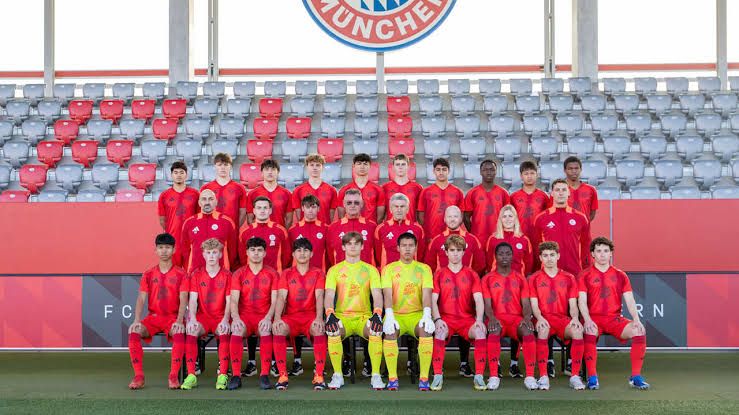
FC Bayern Campus is the centrepiece of Bayern Munich’s youth strategy, linking academy levels directly with first team structures. Prominent alumni include Philipp Lahm, Thomas Müller, Bastian Schweinsteiger, David Alaba, Joshua Kimmich and Serge Gnabry . The academy emphasises leadership traits, physical conditioning, tactical understanding and seamless integration into senior football.
It features top quality facilities and a clear progression pathway aligned with Bayern’s first squad. Development focuses on versatile football intelligence rooted in disciplined German training standards. In recent years, renewed attention to youth has increased the number of academy players in Europe’s top divisions. Bayern graduates often feature prominently in international tournaments and club competitions. This high pedigree and structured methodology make Bayern Munich Campus one of the most reliable academies delivering world class professionals at regular intervals.
5. Sporting CP Academy (Portugal)
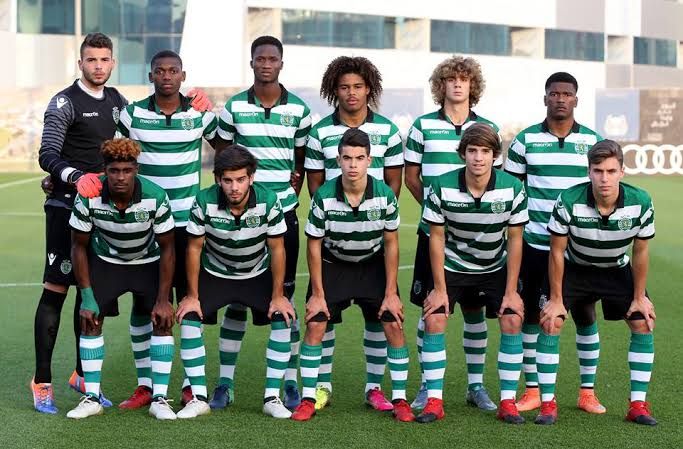
Sporting CP’s academy at Alcochete is deeply woven in Portuguese football culture and is famous for launching Cristiano Ronaldo, Luís Figo and Bruno Fernandes among others . Its scouting network and personalised coaching deliver players with strong technical skills and tactical versatility. Recent graduates like João Félix and Pote highlight Sporting’s ongoing relevance at top level competition.
Sporting focuses on educating young footballers in Ghana, Angola and Brazil as well as Portugal, expanding its scouting footprint. The approach blends physical development, strategic thinking and ball technique in training routines. Sporting’s academy consistently supplies players to top five European leagues. Its reputation rests on creating well rounded individuals capable of thriving in elite football environments. Sporting’s methodical structure ensures each player gains tactical awareness, technical precision and mental resilience needed for global success.
4. AS Monaco Academy (France)
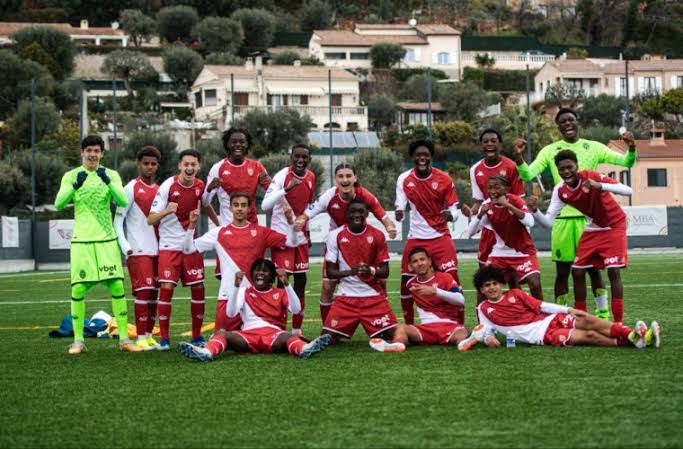
AS Monaco’s academy has a rich history of talent development in European football. Alumni include Thierry Henry, Kylian Mbappé, Emmanuel Petit, Lillian Thuram and David Trezeguet . Monaco combines access to high level coaching with a philosophy that favours early first team exposure. Mbappé’s rapid rise from academy to global star is emblematic of Monaco’s ability to identify and fast‑track exceptional talent.
The club’s structure allows young players to gain professional experience in Ligue 1, then often move to elite clubs in France or abroad. Monaco’s network and scouting system span Africa and Europe, cultivating talent from diverse backgrounds. Training focuses on physical athleticism, technical sharpness, game intelligence and pressure readiness. The academy remains one of the most effective in Europe at converting youth potential into international class professionals.
3. Paris Saint‑Germain Academy (France)
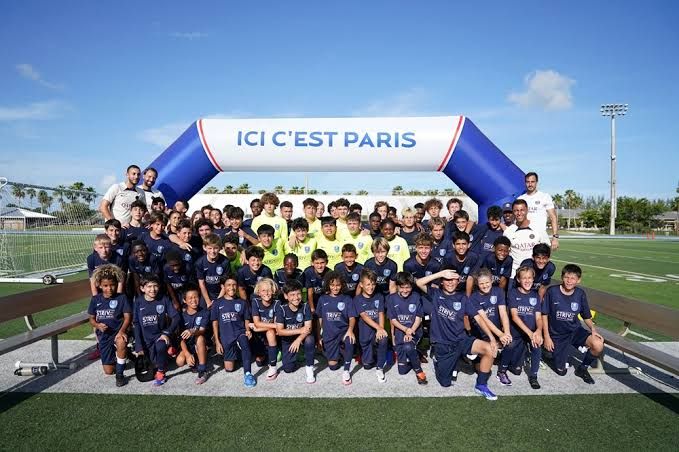
PSG’s youth development centre, based at Campus PSG in Poissy, has gained prestige through graduates such as Kingsley Coman, Marquinhos, Presnel Kimpembe and Adrien Rabiot. PSG has more than 30 academy graduates playing in Europe’s top leagues, reflecting growing success and high output. The academy emphasises holistic growth technical skill, tactical systems, mental resilience and physical fitness.
French football federation support and elite coaching methods ensure players are ready for intense competition. PSG invests in both men’s and women’s youth structures, with a string of youth titles at U19 and U17 levels. The academy also integrates education and personal development alongside football training. This balance produces professionals with strong football IQ and adaptability. PSG Academy thrives through strategic investment, clear player trajectories and consistent production of talent for both domestic and international success.
2. Real Madrid Academy La Fábrica (Spain)
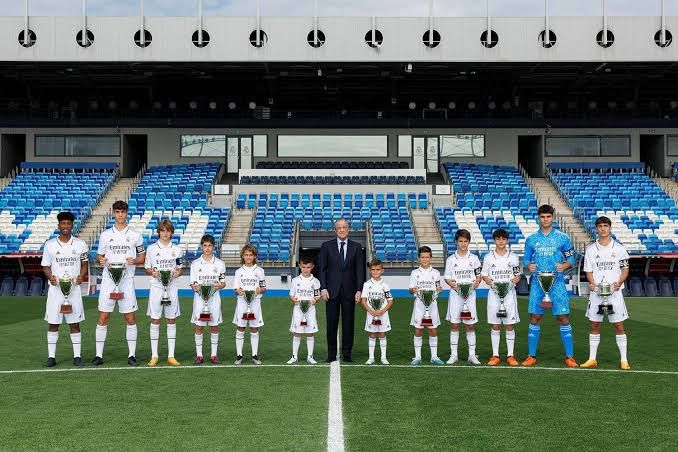
Real Madrid’s La Fábrica stands at the summit of youth development in European football. It has produced more than 35 graduates playing in Europe’s elite leagues as of early 2025 including names such as Iker Casillas, Dani Carvajal, Marcos Llorente and Nacho. The academy combines impeccable technical coaching, tactical education and physical conditioning under high‑performance standards.
La Fábrica’s structure emphasises positional awareness, ball control and strategic adaptability. It crafts players capable of blending into Real Madrid’s distinct playing style while thriving in diverse football environments. Recent youth promotion tactics, as seen by players like Federico Valverde, confirm a renewed focus on homegrown pathways . Though overshadowed by major signings, La Fábrica remains a vital talent source for both Madrid and clubs across Europe. Its legacy, volume of graduates and ongoing quality make Real Madrid’s academy a benchmark in global football development.
1. FC Barcelona La Masia (Spain)
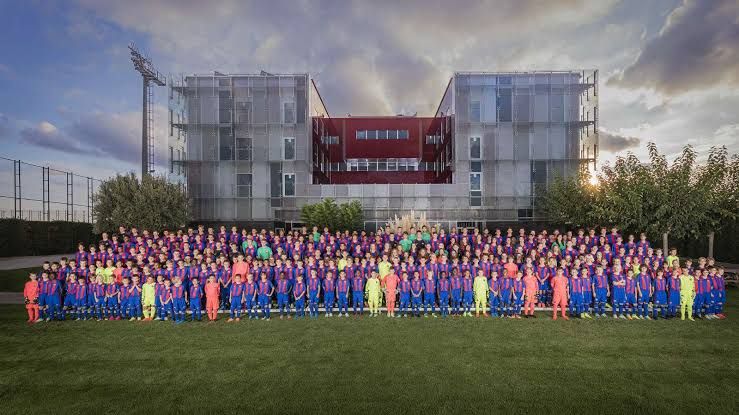
Barcelona’s La Masia continues to lead European academy rankings in 2025. With around 40 current professionals across top leagues, it remains at the pinnacle of youth systems in world football. Legends such as Lionel Messi, Xavi, Iniesta and Sergio Busquets emerged from this system, while modern names like Gavi, Lamine Yamal and Pau Cubarsí showcase its ongoing influence. La Masia embodies Catalan football identity; possession play, spatial awareness, short passing and tactical discipline. Coaching combines rigorous education, club philosophy immersion and advanced technique training. The academy nurtures both character and skill, preparing players for first team integration and global competition. Starting three under‑18s in La Liga opener highlights La Masia’s trust in youth development. Its blend of tradition, consistent graduate output and alignment with club style make Barcelona’s youth system unmatched in terms of producing global stars and influencing modern football.

